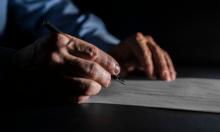Confessions, Japanese Style: Apologize Selectively
Japan's Kyodo News said that the nation's government in the face of Prime Minister Naoto Kan had presented official apologies to South Korea for the colonization of the Korean Peninsula during 1910-1945. Japan also set out a hope for establishing long-term bilateral relations between the two countries.

It took Japan 100 years to acknowledge the fact that the nation's colonial ambitions paved way to the hell of Hiroshima and Nagasaki. The years included both the imperial apotheosis of the Meiji Dynasty and Japan's capitulation in World War Two; its post-war revival and the technological breakthrough, which made the land of the rising sun the indisputable industrial leader of the Asian world.
"The people of South Korea were deprived of their sovereignty and culture, and their ethnic pride was deeply hurt because of Japan's actions. For the enormous damage and suffering caused during this colonial rule, I would like to express once again our deep remorse and heartfelt apology," Naoto Kan said.
Russia Today: Bombing of Japan one of main reasons of nuclear race
The prime minister also said that the cultural treasures, which Japan seized and removed from the Korean Peninsula, would be returned to Seoul in the nearest future. It particularly goes about the collection of renowned royal documents of Korea's Choson Dynasty. The documents describe the rituals and ceremonies of the royal household.
The government of South Korea positively estimated Japan's official apologies and perceived Tokyo's move as a step to overcome the lamentable past of the two nations, S. Korea's Yonhap news agency said. South Korean officials set out a hope for the development of successful bilateral ties based on the proper understanding of history.
The era of Japan's occupation of the Korean Peninsula began de facto after the signing of the peace treaty with Choson dynasty in 1876 and after the signing of the protectorate agreement, which the Japanese government enforced in 1905.
The so-called Japanese Imperial Period of Korea officially started in 1910. On the one hand, this historical period is known for massive suppression of self-awareness of the population. On the other hand, the period was peculiar for its fast economic development, the emergence of intellectuals, bourgeoisie and for the creation of industrial grounds.
In August of 1945, the Red Army conducted a speedy military campaign in China and Korea having liberated the two countries from Japanese invaders. Several groups of the Soviet Army defeated Japan's largest military unit that counted over one million soldiers and officers, about 1,200 tanks and 2,000 warplanes.
Many Koreans had to either struggle on the frontline during the Japanese occupation of 1910-1845 or to work under unbearable conditions. Japan's military aggression still remains a delicate subject for its Asian neighbors.
South Korea will celebrate independence day on August 15. Was the statement from the Japanese prime minister timed to this date, or did it appear spontaneously?
There is another question, which Tokyo has not answered still. As long as Japan is deeply sorry about the immense damage and sufferings caused to South Koreans during the colonial rule, why not doing the same about North Korea? The whole Korean Peninsula was a Japanese colony in 1910, but Pyongyang does not receive any apologies from Japan for some reason.
This time, the official text, approved by the Cabinet of Ministers of Japan, contained the apologies to South Korea alone. However, Japanese leaders previously expressed regret to all neighbors in the region who had suffered from the aggression.
In 2005, for example, then prime minister of Japan Koizumi set out his deep regret about Japan's military aggression in Asia during WWII. Koizumi stated that the colonial rule and aggression caused considerable damage and sufferings to many nations, especially Asian nations. Koizumi released that statement against the background of the crisis in relations between Tokyo and Beijing based on the Japanese history textbooks. China claimed that the new textbooks on history published in Japan cast a veil on real events, which took place with the participation of Japanese military. Chinese specialists said that the Japanese military men killed over 150,000 people from 1937 to 1938 on the occupied Chinese territories. However, Tokyo has never apologized for these and other war crimes.
Nowadays, Japan begins another stage of historical repentance, but it happens selectively, which brings up the idea that the whole matter touches upon only Japan's geopolitical partners in the region. Japan does not apologize for its war crimes committed in Indochina, Burma and Thailand during WWII, not to mention the fact that the nation has not dotted all i's as far as the historical disputes with China are concerned.
As for the official apologies to Seoul, they only emphasize the political motive of the Japanese confessions. It is important for Japan now to support its ally against the background of the growing confrontation between the two Koreas.
Ivan Tulyakov
Pravda.Ru
Subscribe to Pravda.Ru Telegram channel, Facebook, RSS!




